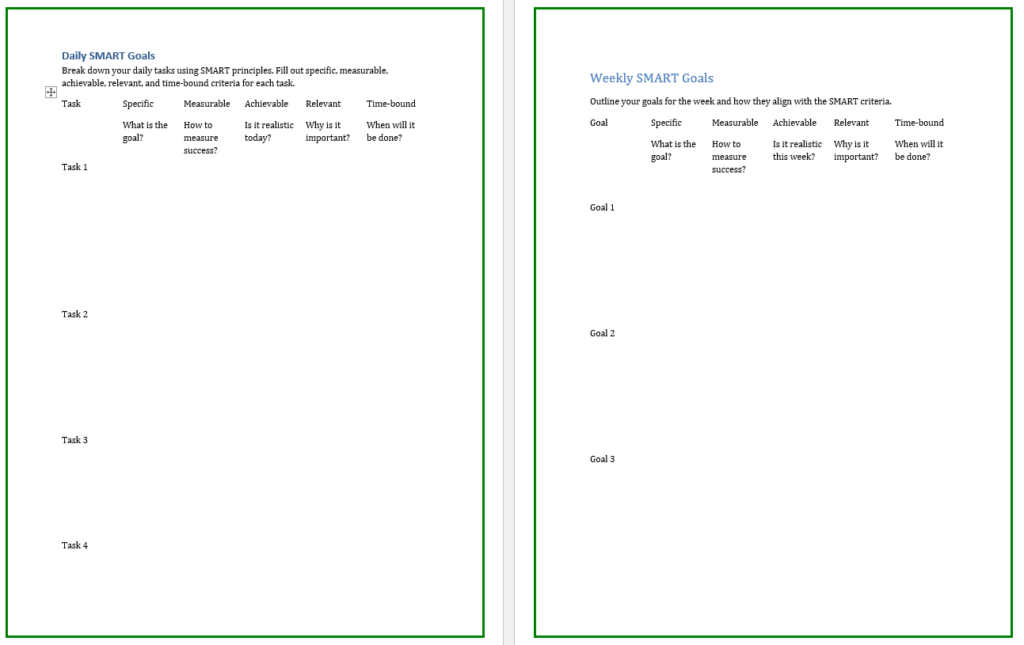
The Key to Personal Transformation Through Faith
At the heart of every believer’s journey toward growth lies a mindset rooted in God’s truth and guidance. This mentality isn’t just an internal drive; it’s a profound, God-given influence shaping how we view the world, ourselves, and the path that God has laid before us. Whether we realize it or not, a faith-centered mentality becomes the foundation upon which every decision, challenge, success, or setback rests. It is the silent architect of our God-given potential, the sturdy ground where personal growth in faith and character is built. Without a strong, resilient, and faith-driven mentality, our journey of spiritual and personal growth can easily waver.
Mentality is not merely a state of mind; it’s the internal compass God provides that either draws us closer to His purpose or leaves us struggling in fear, doubt, or complacency. This mentality shapes our interpretation of life’s ups and downs and directs how we respond to the inevitable trials we face. When nurtured through prayer and scripture, a Christ-centered mentality allows us to view adversity as a tool for spiritual growth. On the other hand, a mentality not rooted in faith can tether us to past hurts, unable to move forward into God’s plan for us. To truly understand the transformative power of a faith-driven mentality, we must explore how it shapes our resilience, openness to learning, and strength in facing challenges with God at our side.
The Foundation of Spiritual and Personal Growth
True personal transformation—the process through which we grow, learn, and align ourselves with our purpose in Christ—requires a mentality grounded in faith and resilience. This kind of mentality provides the rich soil where personal and spiritual development can flourish, enabling us to continuously learn from our experiences, embrace life’s challenges, and envision what we are capable of achieving through Christ. At its core, our journey is one of becoming more aligned with God’s will, growing in wisdom, compassion, and strength of spirit.
A faith-driven mentality serves as the foundation for this journey. Just as a tree needs strong roots to grow tall and withstand the winds, our spiritual and personal growth needs a deeply rooted mentality that draws from our faith. Without it, efforts at self-improvement can be short-lived or superficial, unable to weather the storms of life. However, with a mentality strengthened by faith, we develop the inner resources necessary to persevere, adapt, and ultimately thrive, confident in the knowledge that God’s love and guidance are with us each step of the way.

From Shadows to Starlight“
“Beneath the weight of broken skies,
I cast my gaze where shadows rise,
A sea of doubt, dark waves untamed,
Pulled me down, with self to blame.”
“The moon hid low, the stars were veiled,
While bitter winds of judgment wailed,
Each breath I drew, a heavy tide,
Waves of shame I could not hide.Yet in the depths, a faint song stirred,
A distant hum, a whispered word—
It spoke of stars beyond the storm,
Of seas that rest where hearts are warm.The ocean calmed, its fury ceased,
I floated now in waves of peace,
And as the starlight touched my face,
I felt the pull of gentle grace.The night still holds its endless span,
But now I walk where stars began,
In ocean’s arms, I’ve found release,
In sky and sea, I’ve learned my peace.
~Dr. Tranquil
The Power of a Growth-Oriented Mentality in Christ
A growth-oriented mentality is one that thrives on faith-driven learning and spiritual growth. It embraces the understanding that our God-given intelligence, abilities, and emotional resilience are not fixed but are blessings to be cultivated through prayer, perseverance, and courage in facing challenges. This mindset reflects God’s desire for us to grow in His image, seeing setbacks not as defeats but as essential steps in our journey. When we adopt a growth-oriented mentality, we move from merely avoiding failure to embracing it as a tool through which God strengthens us and draws us closer to Him.
For example, consider two individuals facing the same challenge—a difficult work project or a personal goal that feels daunting. One may approach it with a fixed mentality, feeling that their abilities are static and that they either have what it takes or don’t. This mindset, often rooted in fear, can lead to avoidance of risks and ultimately a sense of being limited. The other, however, with a growth-oriented mentality grounded in faith, trusts that God will provide the strength and wisdom needed to overcome the challenge, even if they don’t have all the answers yet. This faith-driven approach fosters curiosity, resilience, and determination, transforming each challenge into an opportunity to deepen their walk with God.
This shift in perspective is profound. A growth-oriented mentality, guided by God, enhances our ability to learn and strengthens our resilience in adversity. It allows us to see life as a continuous journey of learning and spiritual discovery, where each obstacle becomes a stepping stone toward the wisdom and inner strength God wants us to build.
Mentality Shapes Our Relationship with Success and Failure in Faith
Success and failure are inevitable, yet our response to them is deeply influenced by our mentality. Those with a fixed or negative mentality may view success as validation of their worth and failure as confirmation of inadequacy. This perspective can create fear around failure, discouraging us from trying new things or risking change. However, a mentality grounded in God’s truth views success and failure as part of a divine process—both are valuable, shaping us for the purpose He has planned.
With a growth-oriented mentality, we see success as more than just reaching a goal. It’s a testament to God’s faithfulness in our efforts, patience, and perseverance. Similarly, failure is not a reflection of our worth but a teacher, showing us areas where we can grow, lean on God, and build resilience. This mindset builds a stronger faith, as it encourages us to see failure as a natural, necessary part of God’s plan for our growth.
In this perspective, success is redefined to align with our values and God’s purpose, shifting our focus from external achievements to inner spiritual growth. We begin to measure success by how much we’ve grown in character, humility, and understanding. This change enables us to pursue goals that are meaningful and fulfilling, grounded in a pursuit of God’s will over worldly validation.
Resilience and Faith: Rising Above with Strength in God
Resilience—the ability to move forward despite challenges—is essential in our personal and spiritual evolution. It is the quality that allows us to persevere, to lean on God even in the face of setbacks or uncertainty. At the core of resilience is mentality—the belief that we have the inner strength and God’s presence to guide us through hardships and emerge stronger.
A resilient mentality grounded in faith embraces change and sees each challenge as a God-given opportunity to build inner strength. Resilience doesn’t mean avoiding difficulties; it means facing them head-on with courage and faith, trusting that God is by our side. Those who lack this faith may view challenges as burdens, whereas those rooted in a faith-filled mentality ask, “How is God shaping me through this? What strength can I gain?” This shift in thinking transforms adversity into a powerful catalyst for growth.
Resilience is not an innate trait but a spiritual skill we cultivate by trusting in God and embracing a growth-oriented mentality. Practices like prayer, scripture meditation, and reflection build the mental and spiritual fortitude to navigate life’s challenges with peace and confidence.
Mentality as the Gateway to Realizing Our God-Given Potential
Ultimately, mentality serves as the gateway to realizing our potential in God’s plan. This is not about reaching perfection but about continuously evolving, growing, and aligning with His purpose for us. Self-actualization becomes a journey of becoming more authentic, compassionate, and deeply connected to God’s will for our lives.
A mentality grounded in faith allows us to see ourselves as capable and worthy of fulfilling God’s purpose. Rather than feeling limited by fear, we are empowered by the belief that, through Christ, all things are possible. We become seekers of growth, willing to learn, adapt, and persevere in our walk with God.
Through a mindset that welcomes God’s influence, we create conditions for a truly transformative journey, becoming our fullest selves as God intended. Mentality, rooted in faith, unlocks our potential, inviting us to walk a path of continuous spiritual growth, self-discovery, and fulfillment in Christ.

“The Owl’s Gaze, The Dreamer’s Path“
“The mind, a gate to endless skies,
Where dreams like birds in flight arise,
Not bound by clouds of doubt or fear,
But soaring free, horizons near.
With wisdom’s gaze, the owl will see,
The path to our true destiny,
Not in perfection, still and cold,
But in each step, our lives unfold.
Embrace the winds, the storms, the sun,
For in the journey, we become—
A fuller self, through every fall,
By growth, we answer the soul’s call.“
Dr. Tranquil
Daily Practice: Focusing on Mentality with SMART Goals
No drop of water thinks itself a powerful wave.

The key to cultivating a healthy mentality lies in the power of daily practice. Just as we nourish our bodies with food, water, and exercise to maintain physical health, we must also make a deliberate effort to care for our minds and spiritual faith. Mental nourishment comes in the form of reflection, intention-setting, mindfulness, and a continuous engagement in practices that promote emotional well-being, self-discipline, and inner growth.
Daily practice isn’t just a matter of sporadic effort but a dedicated, ongoing commitment to nurturing a mindset that supports growth, resilience, and self-awareness. By focusing on this daily mental nourishment, we empower ourselves to cultivate new habits, reframe negative thought patterns, and maintain emotional equilibrium. The key is consistency and intention, and one of the most powerful tools to ensure this is the SMART goals system.
A free version of a worksheet is downloadable below:

The Role of SMART Goals in Mentality Building
The SMART goals system provides a structured, actionable framework for achieving mental and emotional growth. Rather than aiming for vague or undefined aspirations, SMART goals allow us to set clear, measurable objectives that are both attainable and meaningful. This system turns abstract desires into concrete actions, empowering us to make consistent progress without becoming overwhelmed by the enormity of the journey ahead. Each day, by setting and working toward small, purposeful goals, we can create an environment of gradual yet steady personal evolution.
Let’s break down the components of SMART goals and explore how each element plays a vital role in cultivating a strong mentality:
- Specific: Your goals need to be clear and specific, providing you with a direct path to follow. When it comes to mentality, vagueness can lead to confusion or a lack of direction. For instance, saying, “I want to improve my mindset” is too broad. Instead, frame it as, “I want to practice mindfulness for 10 minutes each morning.” This is a clear, actionable goal that eliminates ambiguity.
- Measurable: The ability to measure progress is essential to keep you motivated and ensure that you’re moving in the right direction. A measurable goal gives you a tangible way to track your success, helping you stay accountable. In terms of mentality, tracking measurable elements could involve the time spent in meditation, the number of positive affirmations practiced, or the frequency of journaling. These metrics give you clear feedback and a sense of accomplishment as you reach your targets.
- Achievable: Setting goals that are realistic and within reach is crucial. If goals are too ambitious, they can become overwhelming and lead to frustration or burnout. The purpose of the SMART system is to ensure that your efforts are sustainable over time. For example, if you’re new to meditation, it might not be realistic to start with an hour-long practice. Instead, aim for 5 to 10 minutes of meditation daily, which is both achievable and manageable. As you build confidence and capability, you can gradually expand these practices.
- Relevant: Every goal you set should be meaningful and aligned with your broader desires for personal growth. The relevance of a goal lies in how it contributes to your overall well-being and development. For instance, practicing mindfulness might be relevant if you’re seeking to reduce stress, improve emotional regulation, or foster a deeper sense of inner peace. By choosing goals that resonate with your core values and long-term aspirations, you ensure that your efforts are both purposeful and fulfilling.
- Time-bound: Finally, setting a time frame for your goals creates a sense of urgency and direction. Without a time-bound element, goals may become procrastinated or deferred indefinitely. Setting deadlines helps you stay focused and creates a sense of structure. When it comes to mentality, creating time-bound goals like “I will meditate for 10 minutes each morning for the next 30 days” sets a clear and manageable timeline for your practice. It also allows you to assess your progress regularly and make adjustments if necessary.
Daily Practice: The Pathway to Sustainable Growth
The beauty of the SMART goals system is that it transforms large, sometimes intimidating goals into manageable steps. Rather than becoming overwhelmed by the idea of radically transforming your mindset or emotional state overnight, you can focus on small, achievable actions each day. These incremental steps build momentum over time, fostering sustainable growth and reinforcing positive mental habits.
By engaging in daily practice, you take ownership of your mental landscape. This consistent attention to mentality encourages mindfulness, emotional awareness, and a deeper connection to your thoughts and behaviors. Whether your goals are related to reducing anxiety, improving self-discipline, cultivating gratitude, or practicing self-compassion, the SMART framework ensures that your efforts are structured, focused, and effective.
For example, let’s consider how you might approach a goal of reducing negative self-talk. Without a structured plan, this goal may feel overwhelming, as negative self-talk is often an ingrained habit that doesn’t disappear overnight. However, by using the SMART system, you can break this larger goal down into manageable, daily steps:
- Specific: Set a goal to become aware of and challenge negative self-talk every time it arises throughout the day.
- Measurable: Aim to track and journal about these instances of negative self-talk at least three times per day.
- Achievable: Start with small steps, such as noticing the negative thoughts without judgment and replacing them with a positive affirmation.
- Relevant: This goal aligns with your broader desire for self-love, confidence, and emotional resilience.
- Time-bound: Commit to this practice for one month, after which you can assess your progress and adjust your approach as needed.
By breaking down your goal in this way, you create a clear, actionable plan that is easy to follow and reinforces positive changes in your mentality. As you track your progress over time, you’ll notice that the frequency and intensity of negative self-talk gradually diminish, replaced by a more positive and compassionate internal dialogue.
The Role of Faith and Spirituality in Building a Resilient Mentality
Faith and spirituality serve as the ultimate foundation for mental and emotional growth, providing a sense of purpose, peace, and strength that transcends any challenge. By inviting God into our journey of personal development, we shift our focus from self-reliance to God-reliance, recognizing that true strength and resilience come from aligning our goals with His will. When we anchor our goals in faith, we are not only working toward personal achievements but also seeking to fulfill a divine purpose.
Incorporating faith into our mentality-building journey is like nurturing a spiritual partnership with God, where each step forward is guided and empowered by His love and wisdom. Just as the SMART goals system emphasizes the importance of small, achievable steps, our faith reminds us that each of these steps is blessed by God and contributes to a deeper connection with Him. Every act of resilience, discipline, and self-reflection becomes an offering of our dedication to becoming the person God calls us to be.
The Power of Prayer and Reflection in Goal Setting
Prayer and reflection are spiritual practices that deepen our commitment to our goals by aligning them with God’s purpose for our lives. Through prayer, we invite God’s guidance into our planning, asking for clarity and strength in pursuing what truly matters. Reflection allows us to assess our progress, learn from our experiences, and reaffirm our dedication to our growth in Christ. By regularly engaging in these practices, we cultivate a spirit of humility and gratitude, recognizing that each small success is a testament to God’s work in our lives.
Strengthening Faith and Resilience Through God’s Word
Scripture serves as a wellspring of strength, encouragement, and wisdom, reminding us of God’s promises and faithfulness in times of difficulty. When we incorporate scripture into our goals, we ground our mentality in eternal truths that provide resilience and hope. Verses like Philippians 4:13, “I can do all things through Christ who strengthens me,” or Psalm 46:1, “God is our refuge and strength, an ever-present help in trouble,” serve as powerful affirmations, inspiring us to persevere in our journey.
By turning to God’s Word, we gain a perspective that surpasses worldly concerns and allows us to face challenges with an unwavering spirit. This spiritual grounding reinforces emotional resilience, allowing us to approach setbacks and obstacles with faith and trust in God’s timing.
The Role of Surrender and Trust in the Process
In the pursuit of mental and emotional growth, it’s easy to become focused on outcomes and achievements. However, faith teaches us to surrender our expectations and place our trust in God’s greater plan. By embracing this mindset, we release ourselves from the burden of perfectionism and find peace in knowing that God’s guidance will lead us to where we need to be. Trusting in His wisdom allows us to view each challenge not as a setback but as an opportunity for spiritual growth and refinement.
Through surrender, we gain a deeper understanding of the value of patience and perseverance, knowing that God is shaping us through every experience. In this way, our growth-oriented mentality becomes a testament to our faith, showing us that with God’s help, we can overcome any obstacle and transform each step into a journey of spiritual evolution.
In essence, faith and spirituality infuse our goals with a deeper purpose, transforming our journey of personal development into a profound expression of our love and devotion to God. By setting goals that honor both our earthly ambitions and our spiritual calling, we build a resilient mentality that is empowered by faith and anchored in His everlasting grace.
Daily Attention to Mentality: A Lifelong Practice
Daily attention to mentality is not a short-term endeavor—it is a lifelong practice. Just as physical health requires ongoing care and maintenance, so too does mental, spiritual, and emotional well-being. The SMART goals system serves as a powerful tool to guide this lifelong practice, providing structure, direction, and accountability.
As you continue to use SMART goals to nurture your mentality, you’ll find that your goals evolve over time. What begins as a 10-minute meditation practice may expand into deeper mindfulness techniques, self-compassion exercises, or spiritual exploration. Each goal builds on the previous one, creating a continuous cycle of growth and self-improvement.
The key is to remain committed to daily practice, even when progress feels slow or challenges arise. By maintaining focus on your goals and consistently engaging in practices that support your mental and emotional well-being, you’ll experience profound shifts in your mindset, resilience, and overall sense of fulfillment.

“The Bee’s Journey, Unbroken“
“A seedling breaks the earth’s embrace,
Soft petals stretch to find their place,
The bumblebee, with gentle hum,
Dances where the blooms have come.
It seeks the nectar, sweet and slow,
But shadows shift—the wasp, aglow,
Gives chase with hunger in its flight,
Yet the bee persists in morning light.
Through winds of doubt and fears that sting,
The bee endures, still gathering,
For every flower bears a goal,
And nothing halts a steadfast soul.”
Dr. Tranquil
Cultivating Growth

To focus on the storm is to miss the beauty of the beach. If I had focused just on the storm, I would have missed the radiance of the sun’s rays while I prayed meditating on this beach.
Personal growth is not a final destination to be reached, but a journey—an ongoing, ever-unfolding process of revolution, learning, and self-discovery. It involves deepening our understanding of who we are, refining our sense of purpose, and becoming more aligned with our true selves. At the very core of this process lies our mentality—the lens through which we view the world, interpret our experiences, and interact with both challenges and opportunities. Our mentality defines the stories we tell ourselves about what is possible, how we navigate obstacles, and how we relate to others and ourselves.
A healthy mentality enables us to approach life with curiosity, openness, and resilience, grounded in the belief that each day is an opportunity to grow in God’s purpose for us. It shapes our capacity for growth and allows us to view life’s inevitable uncertainties not as barriers, but as divine invitations to deepen our faith and trust in His plan. Cultivating a growth-oriented mentality is about shifting our thinking, embracing a mindset that values learning, adaptability, and the truth that we are continuously evolving in alignment with God’s will. Through this shift in perspective, we unlock the true potential that God has placed within us, allowing us to experience life more fully, with a sense of purpose and joy rooted in His love and guidance.
Embracing Change: The Key to Growth
Change is one of the few constants in life, yet it often feels uncomfortable, unpredictable, and at times overwhelming. For many people, the thought of change evokes fear—fear of the unknown, fear of failure, or fear of leaving the safety of the familiar. However, a growth-oriented mentality reframes change not as something to fear, but as a vital and necessary part of personal revolution. This mindset recognizes that growth and change are inextricably linked; to grow, we must be willing to embrace change in all its forms—whether it’s a change in our circumstances, relationships, or even our beliefs about ourselves.
A mentality that welcomes change sees it as an opportunity to learn and expand. This shift in perspective transforms the discomfort of uncertainty into a catalyst for growth. When we adopt this approach, we open ourselves to new experiences, fresh perspectives, and untapped potential. We recognize that change, rather than being something to resist, is the very force that propels us toward greater self-awareness, wisdom, and fulfillment.
The first step in cultivating this mentality is to reframe our relationship with discomfort. Growth often occurs outside of our comfort zones, in the spaces where we are stretched beyond what feels safe or familiar. When we shift our perspective to view discomfort as a sign that we are growing, we become more willing to embrace challenges and uncertainties. This mindset allows us to navigate change with greater ease and flexibility, trusting that even in the face of difficulty, we are moving toward greater personal revolution.
The Growth-Oriented Mentality: Viewing Challenges as Opportunities
At the heart of a growth-oriented mentality is the belief that challenges are not roadblocks, but stepping stones. This perspective shift is transformative because it allows us to approach life’s difficulties with curiosity and resilience, rather than fear or defeat. A growth-oriented mentality sees each challenge as an opportunity to learn, adapt, and become stronger. Rather than being defined by the challenges we face, we are defined by how we respond to them.
Consider how two individuals might approach a significant life challenge, such as losing a job or facing a major personal setback. One person with a fixed mentality may view the situation as a failure, believing that it confirms their worst fears about their capabilities or worth. This mindset often leads to feelings of helplessness, frustration, and resignation. On the other hand, someone with a growth-oriented mentality sees the same challenge as an opportunity for learning and reinvention. They might ask themselves, “What can I learn from this experience? How can I use this setback to build new skills or explore different opportunities?” This shift in perspective transforms what might have been a devastating situation into one filled with potential.
This approach requires flexibility in thinking. A rigid mindset tends to view challenges in black-and-white terms: success or failure, right or wrong, good or bad. In contrast, a growth-oriented mentality embraces complexity and nuance. It understands that challenges are multifaceted and that even in difficult situations, there is always something to be gained. Whether it’s a lesson learned, a skill developed, or a new perspective gained, every challenge offers the potential for growth.
By regularly engaging with challenges from this perspective, we strengthen our resilience—the ability to bounce back from adversity and continue moving forward. Resilience is not about avoiding difficulty but about developing the inner resources to thrive in the face of it. When we approach challenges with a growth-oriented mentality, we cultivate the mental flexibility and emotional strength needed to overcome obstacles and transform them into opportunities for personal growth.
The Power of Openness and Flexibility
At the core of a growth-oriented mentality is openness—openness to new experiences, new ideas, and new ways of thinking. This openness allows us to continuously challenge our reality, expand our horizons, and deepen our understanding of ourselves and the world around us. However, openness requires us to let go of preconceived notions and rigid beliefs, which can be challenging for those who are used to viewing the world through a fixed mindset.
A fixed mentality tends to cling to certainty, believing that there is only one “right” way to do things or that certain outcomes are set in stone. This rigidity can stifle growth, as it limits our ability to adapt to new circumstances or entertain different perspectives. In contrast, a growth-oriented mentality embraces flexibility, understanding that there are many ways to approach a situation, and that change is not something to fear but something to explore.
This mentality fosters a sense of curiosity—an eagerness to learn, to ask questions, and to see things from multiple angles. Curiosity is a powerful tool for growth because it drives us to seek out new knowledge and challenge our assumptions. Rather than feeling threatened by different viewpoints or unfamiliar experiences, a curious mind welcomes them as opportunities to grow and expand. This openness to learning is essential for personal evolution, as it allows us to continually refine our understanding of ourselves and the world around us.
To cultivate openness and flexibility, it can be helpful to practice non-attachment. Non-attachment does not mean detachment or indifference, but rather the ability to engage fully with life while letting go of rigid expectations or the need for control. When we practice non-attachment, we allow ourselves to flow with life’s changes rather than resisting them. We become more adaptable, more willing to try new things, and more accepting of the fact that not everything will unfold exactly as we planned.
Intentional Practice: Strengthening the Growth Mentality
While a growth-oriented mentality can feel natural to some, for many it requires intentional cultivation. Our mentality is shaped by a lifetime of experiences, beliefs, and conditioning, and shifting from a fixed to a growth mindset often requires conscious effort. However, with consistent practice, it is possible to develop and strengthen a mentality that supports continuous personal growth and transformation.
One way to begin this practice is by engaging in self-reflection. Regular self-reflection allows us to examine the thoughts, beliefs, and perspectives that shape our mentality. Through reflection, we can identify patterns of thinking that may be holding us back—whether it’s a fear of failure, a need for control, or a tendency to view challenges as insurmountable. By bringing these patterns into conscious awareness, we can begin to challenge and reframe them.
Another important practice is setting growth-oriented goals. Setting specific, achievable goals that focus on learning and development rather than perfection or outcome helps shift our mentality toward growth. These goals could involve learning a new skill, cultivating emotional resilience, or practicing mindfulness. By focusing on the process of growth rather than the end result, we reinforce the belief that personal evolution is an ongoing journey rather than a fixed destination.
Mindfulness is also a valuable tool for cultivating a growth-oriented mentality. Mindfulness teaches us to be present with our thoughts and emotions without judgment, allowing us to observe our mental patterns with greater clarity. Through mindfulness, we can become more aware of how our mentality shapes our experiences and begin to shift toward a mindset that is more open, flexible, and curious. This practice of present-moment awareness can help us develop the resilience and adaptability needed to navigate life’s challenges with grace.
In addition to these practices, we are called to incorporate faith and spiritual discipline in strengthening our growth mentality. By regularly turning to prayer, we invite God into our journey of personal growth, asking for His guidance in refining our mindset. Through scripture, we receive encouragement to trust in His plan and rely on His strength, especially when facing challenges. When we make God a part of our self-reflection, goal-setting, and mindfulness practices, we align our growth journey with His divine purpose for us. In doing so, we open ourselves to the grace and wisdom that only faith can provide, creating a mentality not only focused on self-improvement but also on becoming the person God intends for us to be. This spiritually-rooted growth mentality allows us to evolve with resilience, courage, and a deeper sense of purpose.
The Resilience to Bounce Back: Developing Mental Flexibility
Perhaps one of the most important aspects of a growth-oriented mentality is the ability to bounce back from setbacks. Personal growth is rarely a linear process; it is filled with twists, turns, and unexpected challenges. However, it is not the challenges themselves that determine our growth—it is our ability to recover, learn, and move forward after encountering difficulty. This is where resilience comes into play.
Resilience is the quality that allows us to adapt to adversity, pick ourselves up after failure, and keep moving toward our goals. It is not about avoiding difficulty, but about developing the mental flexibility needed to thrive in the face of it. A growth-oriented mentality strengthens our resilience by helping us view setbacks as opportunities for learning and growth, rather than as definitive failures.
Through intentional practice, self-reflection, and the cultivation of openness and resilience, we can develop a growth-oriented mentality that supports our personal evolution. This mindset allows us to navigate life’s uncertainties with grace, remain curious and open to new experiences, and continuously learn from our challenges and successes alike.

Carved by Rapids, Shaped by Grace“
“A river winds with silent grace,
Its current twists, yet finds its place,
Like life, it flows through bends unknown,
Yet never once does it postpone.The waterfall, with thunderous might,
Cascades through darkness into light,
It falls, it breaks, yet still it streams,
A testament to broken dreams.For in each fall, new paths are born,
Where once was night, we find the morn,
Resilience hums beneath the roar,
A strength that wasn’t there before.The tree will watch, calm in its gaze,
Unshaken by the river’s maze,
For even when the road is steep,
The way is found, the heart can leap.Through every bend and every fall,
Resilience answers failure’s call,
Not as defeat, but as a chance,
To learn, to grow, to rise, to dance.For when the rapids rage with force,
It’s not the fall that steers the course,
But how we stand, and rise again,
That marks the strength of hearts within.The waterfall may crash and churn,
But from each drop, there’s much to learn,
Like rivers carving through the stone,
We shape ourselves, through loss we’ve grown.So stand, like tree beside the stream,
Embrace the flow, and let it gleam—
For every fall refines the soul,
Resilience guides us to our goal.”
“Dr. Tranquil
The link of Physicality and Mentality

This elephant shows the grandiosity of physicality with the grace and intelligence of a strong mentality. Stubborn, but flexible.
The relationship between the mind and body is like a finely tuned symphony, each component inextricably influencing the other in an elegant dance of balance and harmony. When this connection is nurtured, we experience a sense of holistic well-being where the mind’s clarity supports the body’s vitality, and the body’s strength feeds the mind’s resilience. The interplay between mentality and physical health is not a mere coincidence; it is a fundamental truth of human existence. As the mind bends and stretches to meet life’s demands, so too does the body reflect those mental exertions, often in very visible and tangible ways.
Our mentality—the lens through which we interpret the world—acts as both a compass and an engine for our physical health. When our mindset is strong, positive, and adaptive, we are naturally drawn to behaviors that nourish our physical selves, like engaging in regular exercise, choosing nutrient-rich foods, and allowing ourselves time for deep rest and recovery. On the other hand, when our minds are burdened with stress, negativity, or emotional overwhelm, the body bears the weight of that mental strain, manifesting in fatigue, tension, illness, and sometimes chronic pain. It is as though the mind and body are two mirrors reflecting each other’s state, inextricably linked in their pursuit of balance.
This mind-body relationship is not only a profound connection within ourselves but also a testament to God’s intricate design. Created in His image, we are divinely crafted to function as whole beings, where the strength of our spirit, mind, and body work in harmony to fulfill His purpose for us. When we nurture this connection with faith, prayer, and gratitude, we experience a deeper sense of well-being, as our mind and body align with the peace and strength that come from God. In times of physical or mental strain, turning to God allows us to draw on His strength, reminding us that we are never alone in our challenges. By trusting in His guidance and caring for our bodies as sacred vessels, we honor the gifts He has given us and create an inner harmony that reflects His love and wisdom. Through this divine alignment, our mentality becomes a channel through which God’s grace flows, empowering us to live with vitality, resilience, and spiritual purpose.
The Impact of Stress on Physical Health: The Silent Weight
Stress is one of the most powerful forces that reveals the interdependence of mind and body, a bit like a storm that brews in the mind but wreaks havoc across the body. Picture stress as an invisible weight pressing down on both the spiritual and the physical self, causing the body to bend under the pressure. Mentally, stress begins with a whirlwind of anxious thoughts and worries, but soon this mental storm spreads into the body, manifesting through tight shoulders, knotted muscles, a racing heart, and shallow breaths.
When stress enters our lives, the body’s ancient “fight or flight” system activates, flooding the bloodstream with cortisol, the stress hormone designed to keep us alert and ready to respond to immediate danger. This is useful when facing a temporary crisis, but when stress becomes chronic—lingering for days, weeks, or even months—this constant state of heightened alertness begins to erode the body’s natural defenses. The metaphorical storm of stress becomes a continuous downpour that, over time, erodes the physical foundation of our health.
Prolonged exposure to elevated cortisol can be likened to a slow poison—at first imperceptible, but eventually corrosive. High cortisol levels are linked to increased blood pressure, weakened immune response, disrupted digestion, and difficulty sleeping. The mind, caught in a loop of stress and anxiety, is not only draining its own energy reserves but is also stripping away the body’s ability to recover, heal, and restore balance. In this way, stress becomes the bridge that connects mental strain to physical dysfunction, illustrating the profound necessity of managing mentality to protect the body.
We advocate for stress management techniques that engage both mind and spirit, addressing the underlying causes of stress rather than merely alleviating its symptoms. Practices like mindfulness, meditation, and reflective breathing serve as anchors, grounding us amidst life’s turbulence and helping to restore harmony within. These practices gently guide the mind toward calm, creating a ripple effect that soothes the nervous system and promotes a state of inner peace. By calming the mind and centering our spirit, we naturally deactivate the body’s stress response, allowing it to return to a balanced state where true healing can unfold. This alignment of mind, body, and spirit opens pathways to holistic well-being, blending the wisdom of spiritual practices with the science of stress reduction.
Physical Practices That Support Mentality: The Body as a Gateway to the Mind
Just as mentality influences physical health, the body holds the power to shape and strengthen the mind. Imagine the body as a gateway through which the mind can be grounded, renewed, and energized. Physical movement—whether through vigorous exercise, gentle stretching, or mindful breathing—acts as a powerful balm for the mind, dissolving mental tension and cultivating a sense of calm and clarity. In the same way that a river carves new paths through the landscape, regular physical activity reshapes the contours of the mind, encouraging flexibility, resilience, and positivity.
Engaging in exercise is like lighting a fire within the body that ignites the brain, releasing endorphins—the body’s natural “feel-good” chemicals. These endorphins flood the brain with sensations of joy, energy, and relief, acting as a counterbalance to the effects of stress. Physical activity not only reduces anxiety and depression but also enhances cognitive function, sharpening focus, and boosting memory. Exercise, whether it’s a brisk walk, a run, or a standing prayer, becomes a tool for recharging the mind, replenishing mental energy, and fortifying emotional resilience.
Christian Yoga and other mindful movement practices serve as an especially potent bridge between the mind and body, integrating physical movement with mental awareness. These practices are like a graceful dialogue between breath and body, where each stretch, pose, or breath becomes a reminder to be present, to release tension, and to invite calm. Christian Yoga’s combination of breathwork and movement creates a unique synergy, melting away stress while cultivating a mindset that is grounded, open, and flexible. As the body moves fluidly through each pose, the mind follows suit, becoming more attuned to the present moment, more adaptable to life’s challenges, and more resilient in the face of adversity.
By prioritizing physical movement in daily routines, we can create a virtuous cycle where the body nourishes the mind, and the mind, in turn, empowers the body. This holistic approach recognizes the interdependence of physical and mental health, acknowledging that one cannot truly thrive without the other.
The Mind-Body Connection: A Dance of Interdependence
The relationship between mind and body is not linear but cyclical—a continuous flow where each informs and influences the other in a dance of interdependence. The mind’s clarity and balance support the body’s vitality, while the body’s health and movement nourish the mind. When we understand this dynamic, we realize that caring for one without the other leaves us incomplete. Just as a garden requires both sunlight and water to thrive, we must nurture both our mental and physical selves to achieve true well-being.
A healthy mentality inspires us to care for our bodies, encouraging us to make choices that promote vitality, such as eating nourishing foods, engaging in regular exercise, and prioritizing rest. In turn, a strong, healthy body provides the mental clarity, focus, and emotional stability we need to navigate life’s complexities with ease. This symbiotic relationship between mind and body is the essence of holistic health, a state where both mental and physical well-being are in harmony, each supporting the other in the pursuit of personal growth.

Twilight’s Unfettered Dance
Ode to independence, wild and free,
A dance of spirit bold, untamed by plea—
You twirl through winds of doubt with fearless grace,
Unbound by chains, you carve your own bright space.
Each step you take, a song of self’s delight,
A rhythm fierce, beneath the stars’ clear light.
No tether holds, no shadows keep you still,
For in your dance, you shape the world with will.
Dr. Tranquil
Studies Supporting Mentality
Throughout this page I referenced the following studies on mentality. I did not directly quote or reference them throughout the page as the goal of this page is to provide an overview of information, not bombard you with science articles and summaries. If I referenced each study here in the text above, I fear this page would be longer then my dissertations! In addition, stats and data only serve to depersonalize the information, which is directly counter to what I want out of this website. I decided to add these references though at the end for those science minded individuals like myself. You may go through and read each of them, and each study has more references for even further information. These studies were all found through databases (google scholar, consensus, pubmed, etc) using keywords relevant to mentality, physicality, self-efficacy, yoga, mindfulness, and stress.
- Diamond, D. M., Rosenfield, D., Kaiser, N., Baker, A. W. (2024). Changes in mindfulness facets across yoga, CBT, and stress education. Link
- Dhawan, A., Patil, V., Gupta, S., & Chugh, G. (2021). Mindfulness and mental health. Link
- Schwartz, J. M., Gulliford, E. Z., Stier, J., & Thienemann, M. (2014). Mindful awareness and neuroplasticity. Link
- Park, C. L., & Slattery, J. M. (2021). Yoga as an integrative therapy for mental health concerns. Link
- Acabchuk, R. L., Brisson, J. M., Park, C. L. (2021). Therapeutic effects of meditation, yoga, and mindfulness-based interventions for chronic symptoms of mild traumatic brain injury. Link
Summaries - Daily Practice of Mental Health: de Bruin et al. (2016) found that daily mindfulness meditation, biofeedback, and physical exercise improved cognitive processes such as attention control and self-compassion (de Bruin et al., 2016).
- Stress and Mentality: Díaz-Silveira et al. (2020) demonstrated that mindfulness and physical exercise during lunch breaks reduced perceived stress and improved mental health in employees (Díaz-Silveira et al., 2020).
- Spirituality and Mental Health: Jyothi et al. (2023) found that heartfulness meditation significantly reduced stress and enhanced well-being in a 90-day study (Jyothi et al., 2023).
- Mental Flexibility: Schönfeld et al. (2015) found self-efficacy as a mediator for mental health, showing how resilience in mental flexibility buffers the impact of daily stress (Schönfeld et al., 2015).
- Physicality and Mentality: Hewett et al. (2017) demonstrated that 16 weeks of Bikram yoga improved perceived stress and general self-efficacy, linking physical activity to better mental health (Hewett et al., 2017).
- Resilience: Rudaz et al. (2017) found that mindfulness-based therapies improve stress reduction, promoting resilience in mental health professionals (Rudaz et al., 2017).
- Mindfulness and Stress: Goyal et al. (2014) demonstrated that mindfulness meditation leads to moderate reductions in psychological stress (Goyal et al., 2014).
- Spirituality: Greeson et al. (2011) found that increased daily spiritual experiences following mindfulness practices improved mental health-related quality of life (Greeson et al., 2011).
- Self-efficacy: Goldstein et al. (2018) highlighted the role of transcendental meditation in improving self-efficacy and reducing stress in mothers facing poverty (Goldstein et al., 2018).
- Mental Flexibility: Gloster et al. (2017) revealed that psychological flexibility moderated stress-related outcomes and physical health (Gloster et al., 2017).
- Physicality and Mental Health: Haseena (2011) demonstrated the positive impact of yoga exercises on mental health in adults (Haseena, 2011).
- Goal Pursuit and Resilience: Kashdan et al. (2020) discussed psychological flexibility’s role in goal pursuit and resilience, providing tools for adaptive emotional regulation (Kashdan et al., 2020).
- Meditation and Well-being: Figura et al. (2023) found that online meditation improved mental health, stress reduction, and spirituality (Figura et al., 2023).
- Yoga and Stress: Arora & Agarwal (2017) found that yoga and meditation together significantly improved psychological well-being in university students (Arora & Agarwal, 2017).
- Self-efficacy and Stress: Schönfeld et al. (2018) found self-efficacy as a significant factor in mediating stress and mental health outcomes in students (Schönfeld et al., 2018).
- Mindfulness and Stress in Healthcare: La Torre et al. (2020) highlighted the effectiveness of mindfulness and yoga in reducing stress and improving mental health in healthcare workers (La Torre et al., 2020).

Calm in the Eye of Chaos
The storm rolls in, with skies of gray,
I see the world begin to sway,
Yet here I stand in quiet ground,
Where winds don’t howl, no rain is found.
The eye is still, the water clear,
A mirror’s face, sharp, calm, severe.
Reflections hold a silent plea—
Is this the place I’m meant to be?
But far beyond, the storm does rage,
And in my heart, I feel the cage—
A pull to run, to meet the roar,
To drown in chaos, seek no more.
For in its arms, I once found peace,
Believing pain could bring release.
I ran toward the blackened sky,
To feel the hurt, to know the why.
Yet as the storm would tear and break,
My soul began to bend, to ache,
Until the winds, no longer kind,
Left only ruin in my mind.
And here, again, the eye I find,
A space so still, with thoughts aligned.
Perhaps the storm is not my foe,
But part of me, that helps me grow.
I stand amidst the swirling fight,
And find my strength within its light.
For in the chaos, I am whole,
Both storm and calm within my soul.
No longer must I run away,
Or fear the clouds that shade the day.
For in the eye, I see at last—
The storm will come, but it will pass.
Dr. Tranquil
Prayers
Psalm 16:8: “I keep my eyes always on the Lord. With him at my right hand, I will not be shaken.”
Psalm 18:2: “The Lord is my rock, my fortress and my deliverer; my God is my rock, in whom I take refuge, my shield and the horn of my salvation, my stronghold.”
Psalm 46:10: “He says, ‘Be still, and know that I am God; I will be exalted among the nations, I will be exalted in the earth.'”
Psalm 62:1-2: “Truly my soul finds rest in God; my salvation comes from him. Truly he is my rock and my salvation; he is my fortress, I will never be shaken.”
Psalm 94:18-19: “When I said, ‘My foot is slipping,’ your unfailing love, Lord, supported me. When anxiety was great within me, your consolation brought me joy.”
Psalm 139:1-2: “You have searched me, Lord, and you know me. You know when I sit and when I rise; you perceive my thoughts from afar.”
Proverbs 3:24: “When you lie down, you will not be afraid; when you lie down, your sleep will be sweet.”
Proverbs 4:23: “Above all else, guard your heart, for everything you do flows from it.”
Isaiah 12:2: “Surely God is my salvation; I will trust and not be afraid. The Lord, the Lord himself, is my strength and my defense; he has become my salvation.”
Isaiah 26:12: “Lord, you establish peace for us; all that we have accomplished you have done for us.”
Isaiah 30:15: “This is what the Sovereign Lord, the Holy One of Israel, says: ‘In repentance and rest is your salvation, in quietness and trust is your strength, but you would have none of it.'”
Isaiah 40:29: “He gives strength to the weary and increases the power of the weak.”
Isaiah 43:1-2: “But now, this is what the Lord says—he who created you, Jacob, he who formed you, Israel: ‘Do not fear, for I have redeemed you; I have summoned you by name; you are mine.'”
Jeremiah 17:7-8: “But blessed is the one who trusts in the Lord, whose confidence is in him. They will be like a tree planted by the water that sends out its roots by the stream.”
Lamentations 3:22-23: “Because of the Lord’s great love we are not consumed, for his compassions never fail. They are new every morning; great is your faithfulness.”
Ezekiel 36:26: “I will give you a new heart and put a new spirit in you; I will remove from you your heart of stone and give you a heart of flesh.”
Matthew 5:3-4: “Blessed are the poor in spirit, for theirs is the kingdom of heaven. Blessed are those who mourn, for they will be comforted.”
Matthew 6:25-26: “Therefore I tell you, do not worry about your life, what you will eat or drink; or about your body, what you will wear. Is not life more than food, and the body more than clothes?”
Matthew 6:33-34: “But seek first his kingdom and his righteousness, and all these things will be given to you as well. Therefore do not worry about tomorrow.”
Matthew 11:29: “Take my yoke upon you and learn from me, for I am gentle and humble in heart, and you will find rest for your souls.”
Mark 5:36: “Overhearing what they said, Jesus told him, ‘Don’t be afraid; just believe.'”
Luke 1:37: “For no word from God will ever fail.”
Luke 12:32: “Do not be afraid, little flock, for your Father has been pleased to give you the kingdom.”
John 8:12: “When Jesus spoke again to the people, he said, ‘I am the light of the world. Whoever follows me will never walk in darkness, but will have the light of life.'”
John 10:10: “The thief comes only to steal and kill and destroy; I have come that they may have life, and have it to the full.”
John 14:1: “Do not let your hearts be troubled. You believe in God; believe also in me.”
Romans 5:3-5: “Not only so, but we also glory in our sufferings, because we know that suffering produces perseverance; perseverance, character; and character, hope.”
Romans 8:1: “Therefore, there is now no condemnation for those who are in Christ Jesus.”
Romans 8:6: “The mind governed by the flesh is death, but the mind governed by the Spirit is life and peace.”
Romans 12:2: “Do not conform to the pattern of this world, but be transformed by the renewing of your mind.”
1 Corinthians 10:13: “No temptation has overtaken you except what is common to mankind. And God is faithful; he will not let you be tempted beyond what you can bear.”
2 Corinthians 4:16-17: “Therefore we do not lose heart. Though outwardly we are wasting away, yet inwardly we are being renewed day by day.”
Galatians 6:9: “Let us not become weary in doing good, for at the proper time we will reap a harvest if we do not give up.”
Ephesians 3:16-17: “I pray that out of his glorious riches he may strengthen you with power through his Spirit in your inner being, so that Christ may dwell in your hearts through faith.”
Philippians 1:6: “Being confident of this, that he who began a good work in you will carry it on to completion until the day of Christ Jesus.”
Colossians 3:2: “Set your minds on things above, not on earthly things.”
1 Thessalonians 5:11: “Therefore encourage one another and build each other up, just as in fact you are doing.”
2 Timothy 2:7: “For the Spirit God gave us does not make us timid, but gives us power, love and self-discipline.”
Hebrews 12:1: “Therefore, since we are surrounded by such a great cloud of witnesses, let us throw off everything that hinders and the sin that so easily entangles.”
James 5:13: “Is anyone among you in trouble? Let them pray. Is anyone happy? Let them sing songs of praise.”

